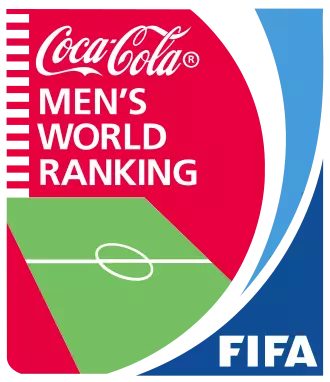The FIFA Men's World Ranking is a system that ranks men's national teams in association football. It provides a basis for comparing the relative strengths of the teams and is led by Argentina as of April 2023. The rankings are based on the game results of the teams, with the most successful teams being ranked highest. Since its introduction in December 1992, the rankings have seen eight teams hold the top position.
Here are the top 20 rankings as of 21 December 2023:
- Argentina - 1855.2 points
- France - 1845.44 points
- England - 1800.05 points
- Belgium - 1798.46 points
- Brazil - 1784.09 points
- Netherlands - 1745.48 points
- Portugal - 1745.06 points
- Spain - 1732.64 points
- Italy - 1718.82 points
- Croatia - 1717.57 points
- Uruguay - 1665.99 points
- United States - 1665.27 points
- Morocco - 1661.69 points
- Colombia - 1655.29 points
- Mexico - 1652.7 points
- Germany - 1631.22 points
- Japan - 1620.19 points
- Switzerland - 1613.44 points
- Denmark - 1601.31 points
- Senegal - 1594.31 points

The FIFA Men's World Ranking has undergone several changes over the years to improve its accuracy. Initially, points were awarded based on the results of all FIFA-recognized full international matches. However, the ranking system was revamped in 2018 and adopted the Elo rating system used in chess and Go. This new system takes into account various factors such as the importance of the match, goals scored or conceded, and regional strengths.
The ranking is sponsored by Coca-Cola, and it is also known as the FIFA/Coca-Cola World Ranking. It is widely used by FIFA to determine the seeding of teams in competitions and as a measure for comparing national teams.
History
The FIFA Men's World Ranking was first introduced in December 1992 to provide a basis for comparing the relative strengths of the men's national teams. The ranking system has seen significant changes over the years in response to criticism and to improve its accuracy.
From 1993 onwards, the rankings were published regularly, and changes were implemented in 1999 and 2006 to address the shortcomings of the system. These changes included factors such as the number of goals scored or conceded, the importance of the match, and regional strength.
In 2018, FIFA announced another update to the ranking system, which adopted the Elo rating system. This new methodology calculates rankings on a game-by-game basis and does not consider home or away games or the margin of victory.
Calculation Method
The current calculation method for the FIFA Men's World Ranking is based on the Elo rating system. After each game, points are added to or subtracted from a team's rating based on the result of the game. The rating change is determined by the difference between the team's rating before the game and the expected result of the game.
The FIFA World Ranking points are calculated based on a formula that takes into account factors such as the importance of the match, the number of goals scored or conceded, and the result of the game. The points are then adjusted based on the team's previous rating.
Uses of the Rankings
The FIFA Men's World Ranking is used by FIFA to rank the progression and ability of national teams. It is also used to seed competitions and determine the winners of the Team of the Year and Best Mover awards.
The rankings have been criticized in the past for their calculation procedure and perceived disparities. Several alternative rankings have been developed by football statisticians. However, FIFA continues to use the FIFA Men's World Ranking as a reliable measure for comparing national teams.
For more information on the FIFA Men's World Ranking, you can visit the official website.
Disclaimer: The rankings mentioned in this article are based on the provided content and may not reflect the most current rankings. Please refer to the official FIFA website for the latest rankings.
















